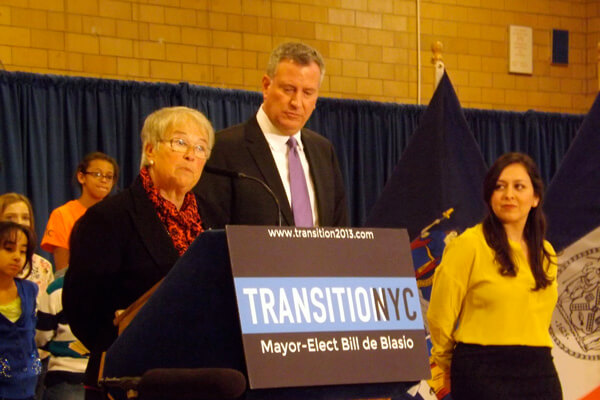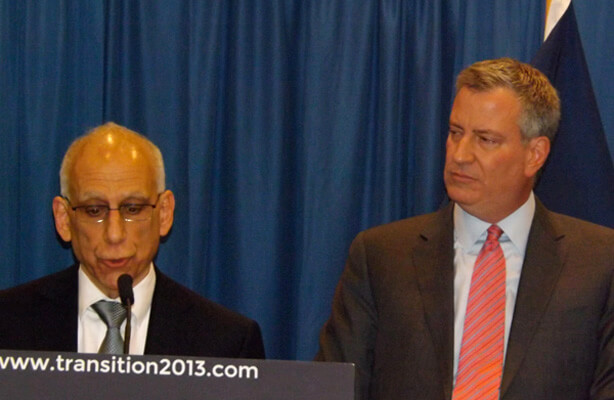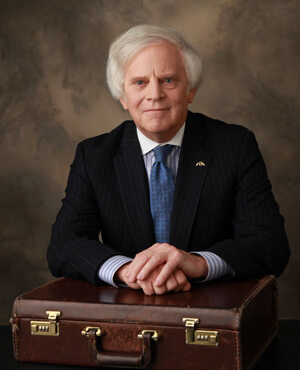Few people would dispute that Washington and American politics in general are broken. Most, in fact, would agree that polarization reached new levels during President Barack Obama’s first term, though any accurate accounting would take note of the deep divisions that plagued George W. Bush’s eight years in office, and — even more pronouncedly — Bill Clinton’s two terms before that.
Still, after a harshly negative fall campaign, the two parties seem unable to find even the slenderest common ground to avert a fiscal trigger of their own making — a dilemma that raises the question of whether elected officials pay any attention at all to election results.
Among those who say they would like to see compromise solutions forged, there is a strong temptation to ascribe our problems to the outsized influence of activists, interest groups, bloggers, and cable television personalities from both the right and the left. To be sure, Americans are far more organized than they have ever previously been along interest and ideological lines, and the two parties have not, going back at least a century or more, been so cleanly divided along a left-right spectrum.
That said, the proposition that thunder on the right and agitation on the left both contribute, to the same degree, to our political stalemate is simply a false equivalency. As the president and a Republican House struggle to come to agreement before the January 1 deadline — either on a broad deal or a narrower one that kicks some big questions down the road — Democrats will surely demand that the distribution of tax burdens be shifted and that basic health and social supports be protected. No matter how dogged their advocacy, however, when the story is written their stance will pale in comparison to the uncompromising posture too many Republicans will cling to on taxes. There is no figure on the left who exerts the sort of domination over the Democrats that Grover Norquist — in extracting lifetime pledges of never raising taxes — does on the GOP.
The tragedy in Newtown, Connecticut last week tests whether we as a society are willing to stand up to another organization exerting outsized influence on our politics — the National Rifle Association. To be fair and clear, the NRA has not only hypnotized a good share of the Republican Party but many Democrats as well. If it hadn’t, it wouldn’t take a tragedy of the magnitude we’ve just witnessed to galvanize public debate. Gun regulation has not been as hot button an issue as many in recent years simply because even people supporting sensible action thought there was little chance of progress.
But Mayor Michael Bloomberg is one leader who challenges the conventional wisdom that the gun group is invincible. “There is this myth that the NRA is so powerful,” he said on “Meet the Press” on Sunday, explaining that a political action committee he funds put “a small amount of money” into seven races where the NRA was spending big dollars — and won four of the seven.
Some say the mayor of the nation’s largest city is ill-suited to take on an organization whose membership skews small town and rural — and, indeed, voices like West Virginia Senator Joe Manchin, a strongly pro-NRA Democrat who this week said, “Everything has to be on the table,” are needed to move the public dialogue.
But the idea that city people don’t understand the role of guns in the lives of those living elsewhere is overblown — at the behest, I would guess, of NRA messaging aimed at forestalling a united push for sensible policy. Some of us may roll our eyes when we see a political ad in which a candidate is showing off their prowess with a rifle, but I have never heard a serious proposal put forward to curtail the fundamental Second Amendment rights guaranteed by the Constitution — much as part of me wishes our society had no guns in civilian hands at all. The debate is all about assault rifles and unregulated gun shows, not about confiscating guns owned legally for a family’s protection and for sport.
Opponents of sensible regulation argue that criminals will always find a way to secure guns. Certainly some will. But as Bloomberg argued this weekend, the inability to promise that every tragedy will be averted is no excuse to do nothing. If we are unwilling to put reasonable additional hurdles on those who would commit the sort of mayhem visited on Connecticut last week, our society clearly has an unhealthy attachment to Second Amendment absolutism.


































